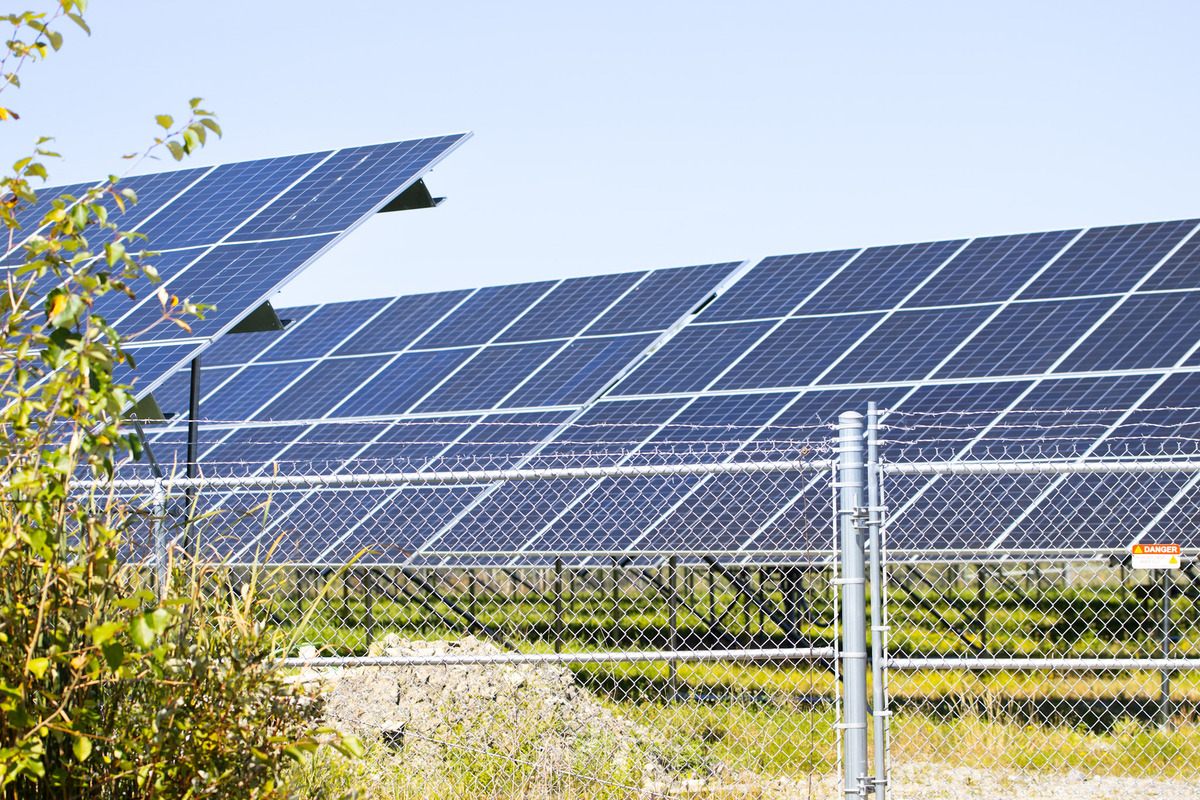URGENT UPDATE: The Presque Isle City Council has just approved a significant change to the city’s land use ordinance aimed at concealing large solar farms from public view. This decision, made on Wednesday, October 18, 2023, comes after months of negotiation and compromise with the planning board.
New commercial solar facilities will now be required to maintain a 100-foot setback from paved roads and a 400-foot setback from residences, along with a mandate for four rows of trees to buffer the sight of the solar arrays. This marks a notable reduction from the initial proposal of a 1,200-foot setback, which was deemed excessive by the council.
Bruce Roope, chair of the planning board, previously expressed concern that the extensive setback would prevent new solar projects, stating, “We have plenty of solar panels in Presque Isle. It’s time for other communities to step up.” The council’s latest decision balances community needs with the push for renewable energy, reflecting a growing tension across Maine regarding solar expansion.
Data from the Solar Energy Industries Association shows that solar energy in Maine surged from 62 megawatts in 2019 to 1,832 megawatts by June 2023, enough to power 341,776 homes. This rapid growth is critical to achieving the state’s goal of 80% renewable energy by 2030. However, many residents oppose solar projects, viewing them as unsightly and expressing concerns over wildlife displacement and deforestation.
In response to local pushback, cities like Brewer, Hermon, and Madawaska have enacted moratoriums on large-scale solar projects. Earlier this year, Presque Isle also considered a moratorium, underscoring the contentious atmosphere surrounding solar developments.
The council’s decision to approve a 100-foot setback demonstrates a commitment to facilitating future solar projects. Currently, there are 15 solar installations in Presque Isle. Councilor Mike Chasse highlighted the economic benefits, stating, “Up to 2024, there’s $16 million in value added to the community and $216,000 in taxes … that’s half a mill paid to the community. It’s jobs, it’s power, it’s local generation.”
The new ordinance also includes additional requirements, such as ensuring that gates on solar projects face away from public view and that facilities under three acres provide a decommissioning report. This is intended to protect the city from potential financial burdens associated with the decommissioning of solar panels. Notably, the ordinance mandates that any unused or damaged panels must be removed within 90 days of damage, promoting environmental responsibility.
As Presque Isle navigates the complexities of solar energy development, the outcome of this ordinance will likely influence similar discussions in communities across Maine. The balance between renewable energy expansion and local concerns remains a critical issue as the state works toward its ambitious energy goals.
Stay tuned for further updates on this developing story as more municipalities respond to the growing demand for renewable energy while addressing community concerns.







